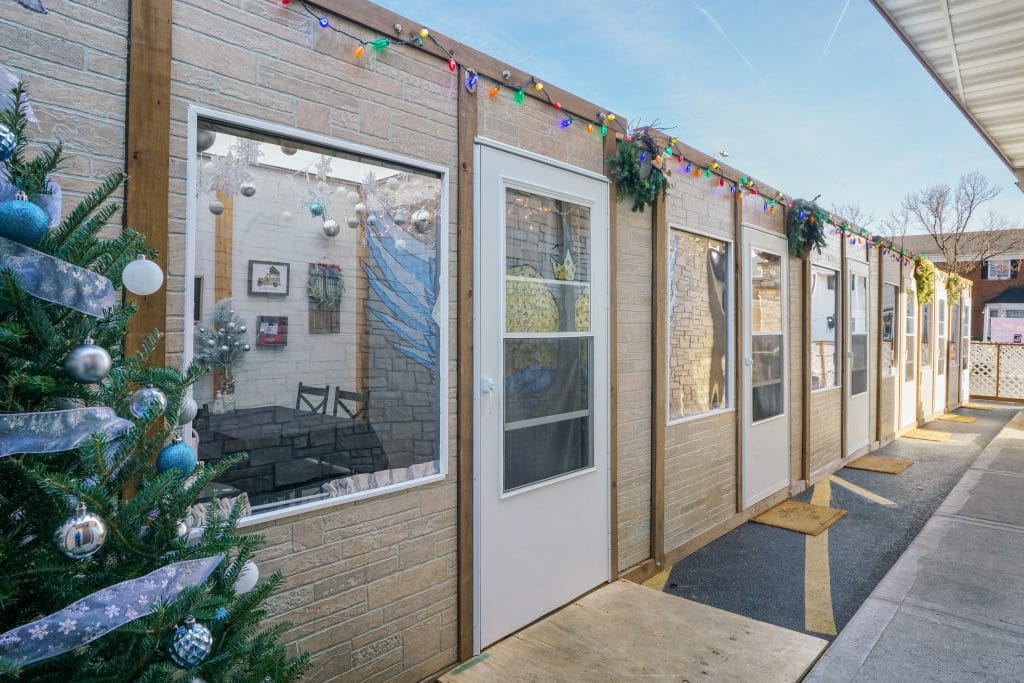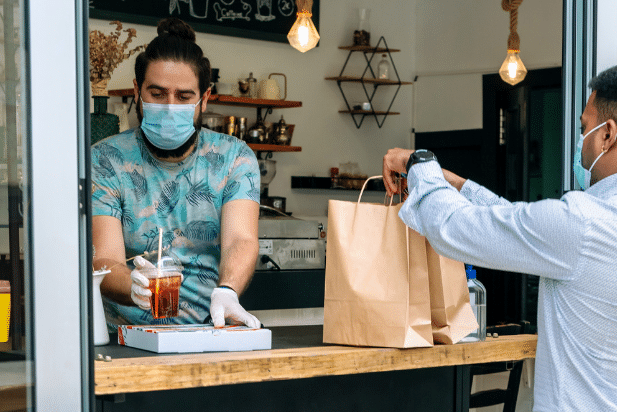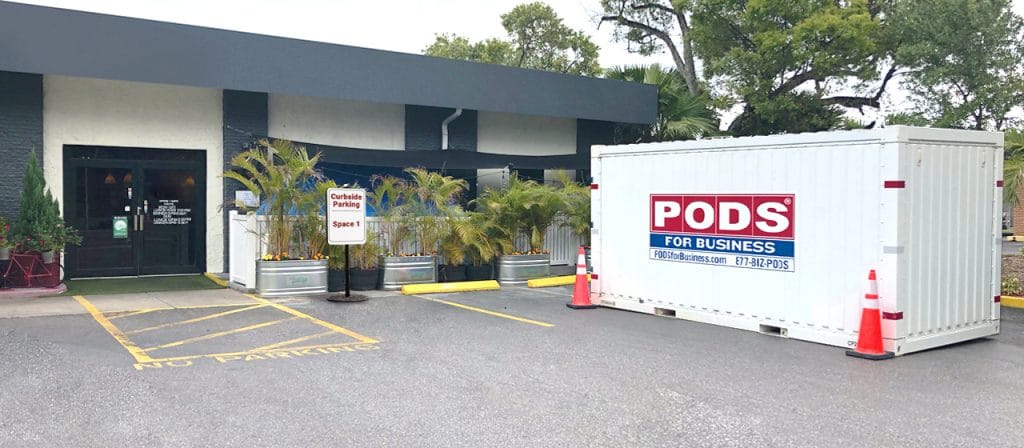
3 Ways Storage Containers Keep People Dining in Restaurants During COVID-19
Dining in restaurants is a little more complicated than it used to be thanks to a global pandemic. With local jurisdictions for facilities fluctuating based on the status of COVID-19, bars and restaurants must be flexible if they want to stay open. Even when indoor dining may be allowed, all it takes is a spike in COVID cases for a municipality to make restrictions for outdoor dining and takeout restaurants only.
While promoting community health and safety is important, many restaurants are struggling to stay afloat due to frequently changing guidelines. Constantly adjusting operations at any restaurant becomes costly over time. However, there is an unlikely solution that can help them keep restaurants keep up through the pandemic: storage containers.

Unsure of how exactly containers can help encourage people to keep dining in restaurants? Continue reading to learn a few ways that portable storage units are being used by restaurants during COVID-19.
1. Create Outdoor Dining Areas
Make your own private dining "pods" with shipping containers that are placed at your establishment. Though the structure of a storage container can be decorated and modified to have similar comforts of a building, all eating and drinking in a storage container are considered to be outdoor dining.
For bars and restaurants in regions that don't have the option of outdoor dining during the winter months, storage containers are ideal for keeping patrons warm so they can enjoy their meal during the cold weather.
| Want to find another way to serve customers beyond to-go orders and curbside pickup? Consider starting a pop-up restaurant in a shipping container. |
2. Make Space for Non-Essential Items
Dine-in restaurants that need to create more area inside their establishments for physical distancing can use containers to hold excess furniture and equipment. Many areas permitting dining require restaurants to keep a minimum distance between tables.

So when restaurants need a place to keep overflow items that temporarily aren't in use, an on-site storage container is a smart option. PODS portable storage containers can be placed just steps outside of an establishment or in the parking lot, so stored goods can be accessed at just a moment's notice.
3. Restaurant Redesigns for COVID-19
Many restaurants are making renovations or upcoming plans to remodel due to the pandemic. The new normal and a post-COVID world is shaping up to show that consumer demands are far different than what they were before the pandemic. Some trends were highly accelerated for many industries — particularly for foodservice.

More people prefer getting food at restaurants via curbside pickup, takeout, and to-go after using those ordering methods during lockdowns and when practicing social distancing. If your restaurant will be renovating as a result of the pandemic, use portable containers to keep dining room furniture, fixtures, and equipment safe and out of the way during construction work.
No Dining in Restaurants in Your Area?
For restaurants that are not permitted to serve guests indoors, or that prefer to operate as a takeout or delivery restaurant, storage containers are still a helpful asset.

PODS portable storage units are an easy and convenient way to store items when you need extra space. Learn more about the restaurant moving and storage solutions we offer.
[maxbutton id="1"]
RELATED ARTICLE: How to Make a Thriving Curbside Pickup Program for Your Restaurant
Comments
Leave a Comment
Your email address will not be published. Required fields are marked *
